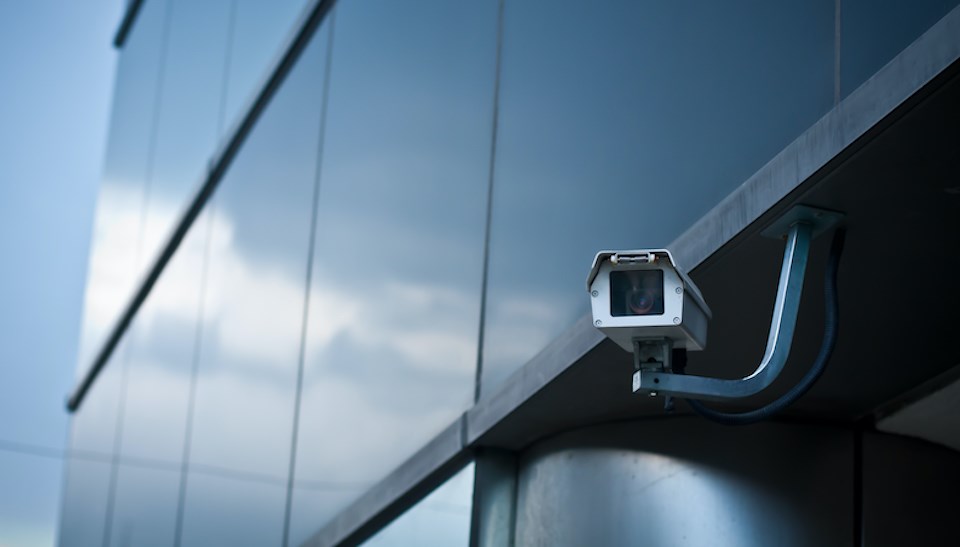How do you feel about being watched?
Whether you like it or not, multiple surveillance cameras record Vancouverites going about their daily lives. Not only does that happen when you enter a business, such as a restaurant or clothing store, but it also occurs in less "obvious" places.
Have you ever taken a good look at your bus stop? Thumbnail-sized cameras have been installed on those, too.
And while video surveillance raises privacy concerns, some local politicians, advocates and members of the Vancouver Police Department (VPD) argue that it translates into greater public safety.
Vancouver City Councillor Melissa De Genova has put forward a motion calling for increased video surveillance in key public areas of the city to "deter violent crime" and to collect evidence to solve VPD investigations.
VPD spokesperson Sgt. Steve Addison told Vancouver Is Awesome that CCTV security video "is an increasingly valuable investigative tool," which has been used frequently by police to "quickly identify and apprehend violent offenders."
The VPD has used CCTV footage to solve several recent violent incidents, including a random stranger attack on New Year's Eve, a stranger assault in a Tim Hortons, and a random assault at Granville SkyTrain Station.
De Genova's motion points to large cities, such as London and New York, that utilize CCTV cameras to deter and solve crimes. In these cities, the technology has been developed to include facial recognition technology, which can identify violent offenders and protect vulnerable people.
Opposition to increased CCTV surveillance in Vancouver
Several local groups have raised concerns about the implementation of increased CCTV surveillance, citing privacy concerns and discrimination.
Women Transforming Cities (WTC), a Vancouver-based non-profit organization that strives to build better cities for women and girls, highlights how tools such as facial recognition technology disproportionately target and impact Indigenous, Black, and racialized people.
The use of facial recognition also hasn't been proven to deter violent crime, said Mahtab Laghaei, a campaign lead with WTC. "It's also been banned by a lot of cities, like Portland, San Fransisco, and Boston, because of the dangers of facial recognition, privacy and the impact on civic life."
Bryan Short, a spokesperson for OpenMedia, a Vancouver-based nonprofit that strives to keep the Internet surveillance-free, echoes these thoughts, noting that in over a dozen cities across the United States, city councils have enacted ordinances that put the control of police technology before democratically elected councils, not appointed police boards.
"These ordinances, called Community Control of Police Surveillance or CCOPS, allow for public input, advice from expert panels, and yearly reviews of technology. This is a model that Vancouver should be moving towards," he wrote to V.I.A. in an email.
Short said the motion threatens to transform Vancouver's public spaces for the worse by introducing the risk of constant surveillance.
"This is a technology that's been shown to be biased and discriminatory towards women, Black, and Indigenous people, and is completely out-of-step with Canada's outdated privacy laws," he added.
Alternatives to surveillance
Executive director of the Battered Women's Support Services (BWSS) Angela Marie MacDougall told V.I.A. that CCTV cameras have helped police find the perpetrators of violent crimes, such as sexual assault. But she underscored that increased surveillance will do nothing to address systemic issues.
"We should feel a bit skeptical to think that that kind of surveillance is going to make a difference in terms of safety for women experiencing gender-based violence," she noted in a phone interview. "CCTV cameras cannot duplicate or replace the experience of being around people who are looking out for you.
"There is no digital tool that can stop random acts of violence and the perpetration of violence against women in the city."
Instead of increasing surveillance, city council should focus on building stronger communities where people feel safe, MacDougall said. "We have the tools to do community-based intervention but it's not resourced.
"Instead, we default to this kind of stuff that feeds a particular kind of fear that wants to enhance a police response."
V.I.A. has reached out to De Genova for comment.



